GUEST POST by JANET WEIL
“Someday soon we all will be together
If the fates allow
Until then we’ll have to muddle through somehow
So have yourself a merry little Christmas now…” — By Hugh Martin and Ralph Blane
Judaism is my religion, but I do have a favorite (secular) Christmas song: “Have yourself a merry little Christmas.” Written and performed (most famously by Judy Garland) in the depths of the anxiety of World War II, this poignant ballad still gives voice to our yearning for happiness with loved ones at a special time of the year.
What we are living through now both resembles and does not resemble a global war. Christmas and Hanukah 2019 will take place at the end of a year of climate catastrophes. As in war, disasters bring devastation and frightened people evacuate, searching for shelter and peace.
But instead of our government and society organizing a collective, serious response on the scale of WWII, the climate crisis so far has been met with scattered if well-meaning efforts by NGOs (350.org, for example), small groups’ direct actions that are brave but remote from most people’s lives, and individual solutions such as flying less, cutting down on meat and using less, or even no, plastic.
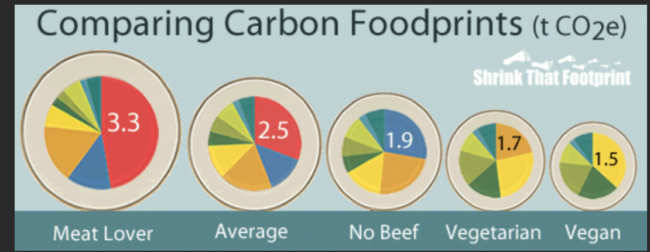
Individual efforts to address climate change include a change in diet, often resulting in a cut back on meat consumption.
Just how will we “muddle through”, staying conscious of our desire for a better world, especially for our children and future generations, during the winter holiday season?
One possibility: the Zero Option. Consider what you would do for Christmas (or Hanukah) if you and your family had to leave your home, as so many have had to this year. Imagine you had nothing material for the holiday. No decorated tree, no stack of presents. No mantel covered in cards, no wreath on the door or lights on the roof, none of your holiday decorations. No plane trips to and from a vacation spot. How would you celebrate the holy day(s) with no THINGS?
Some possibilities: time with friends and family; religious services, meditation and prayer; music; walks in nature. You might find this option gives you a more restful or spiritual holiday season.
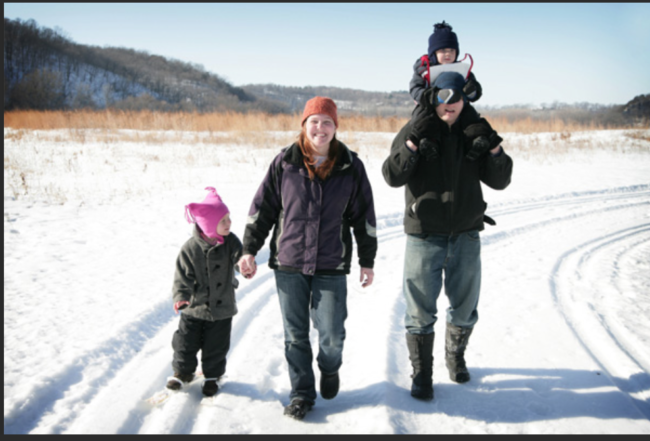
Celebrating Xmas with an awareness of climate change could mean fewer gifts and more family time in nature.
But this choice may feel like being an “Eco-Scrooge.” Another option is to “double-down” – celebrate as you normally do, but also set aside an equal amount of money to contribute to activist groups, or individual activists. Or host a local chapter of an environmental organization, providing a lovingly decorated home and seasonal goodies, for a strategy and planning session. Or… ?? Your imagination and goodwill, maybe with suggestions from friends and family, can cook up lots of possibilities.
As I write this, the online ads and paper catalogs are pouring in. It’s beginning to look a lot like Christmas, with stressed workers (it’s not called the “Christmas rush” for nothing!), frantic consumers, and garish piles of merchandise in an ever-longer shopping “season”. The cargo ships, the warehouses, the trucks, the stores are filling up… with Christmas crap. Well, it’s not all crap – but a lot of it is.
All of it took fossil fuels and other resources to manufacture, transport and display. Much of it will fall into the vast American waste stream, all too soon. Together with its tiny imitator, Hanukah US-style, Christmas consumerism generates approximately hundreds of pounds of CO2, or 5.5% of the average yearly CO2 emissions, per person.
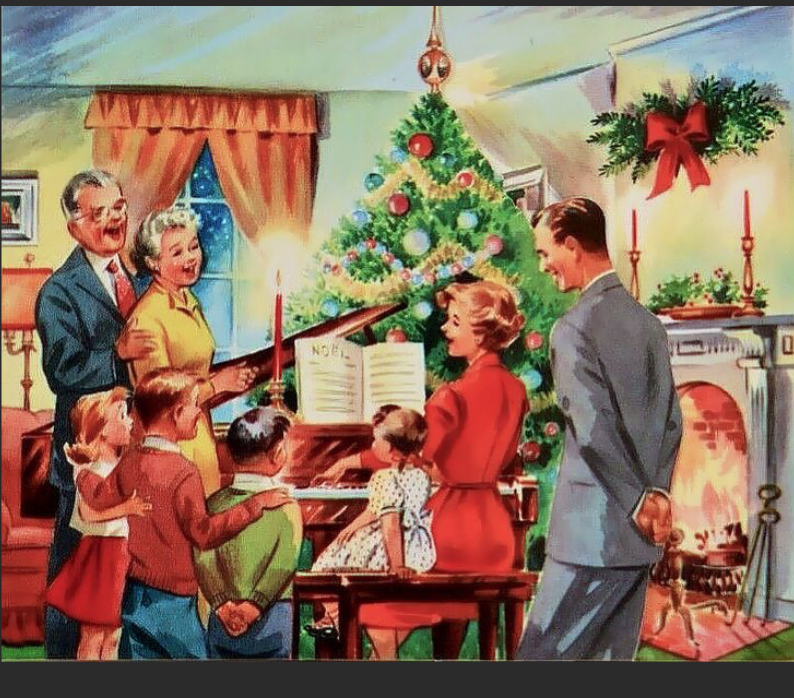
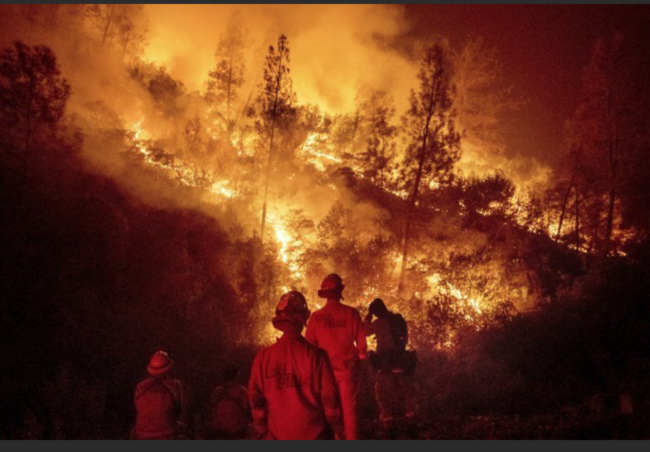
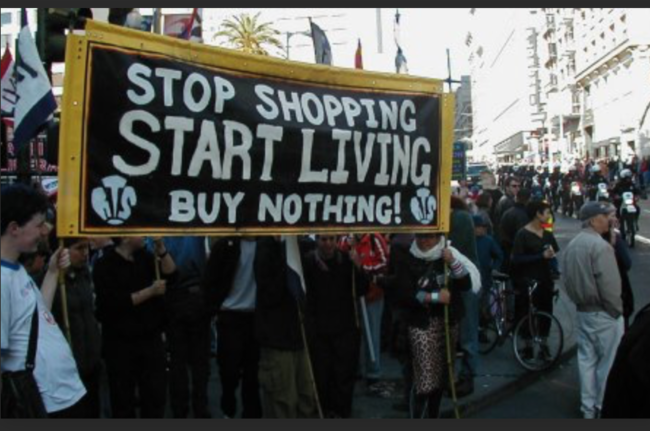
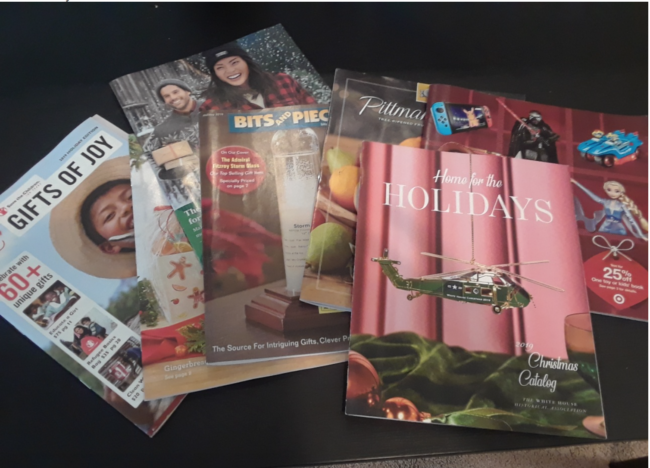
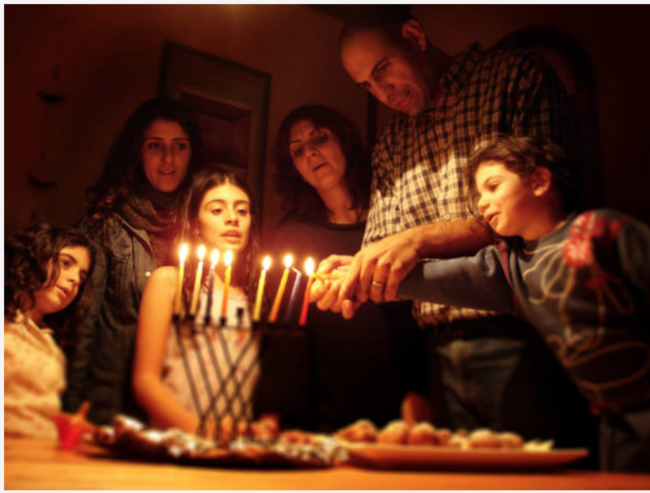
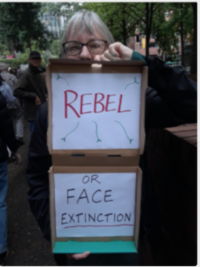 A retired ESL teacher and newly fired-up climate/eco activist, Janet Weil lives in Portland, Oregon with her husband. She enjoys spending time with her extended family, and in the great bookstores and libraries in the metro area. She shares political views and her photography on Twitter: @JanetRWeil.
A retired ESL teacher and newly fired-up climate/eco activist, Janet Weil lives in Portland, Oregon with her husband. She enjoys spending time with her extended family, and in the great bookstores and libraries in the metro area. She shares political views and her photography on Twitter: @JanetRWeil.